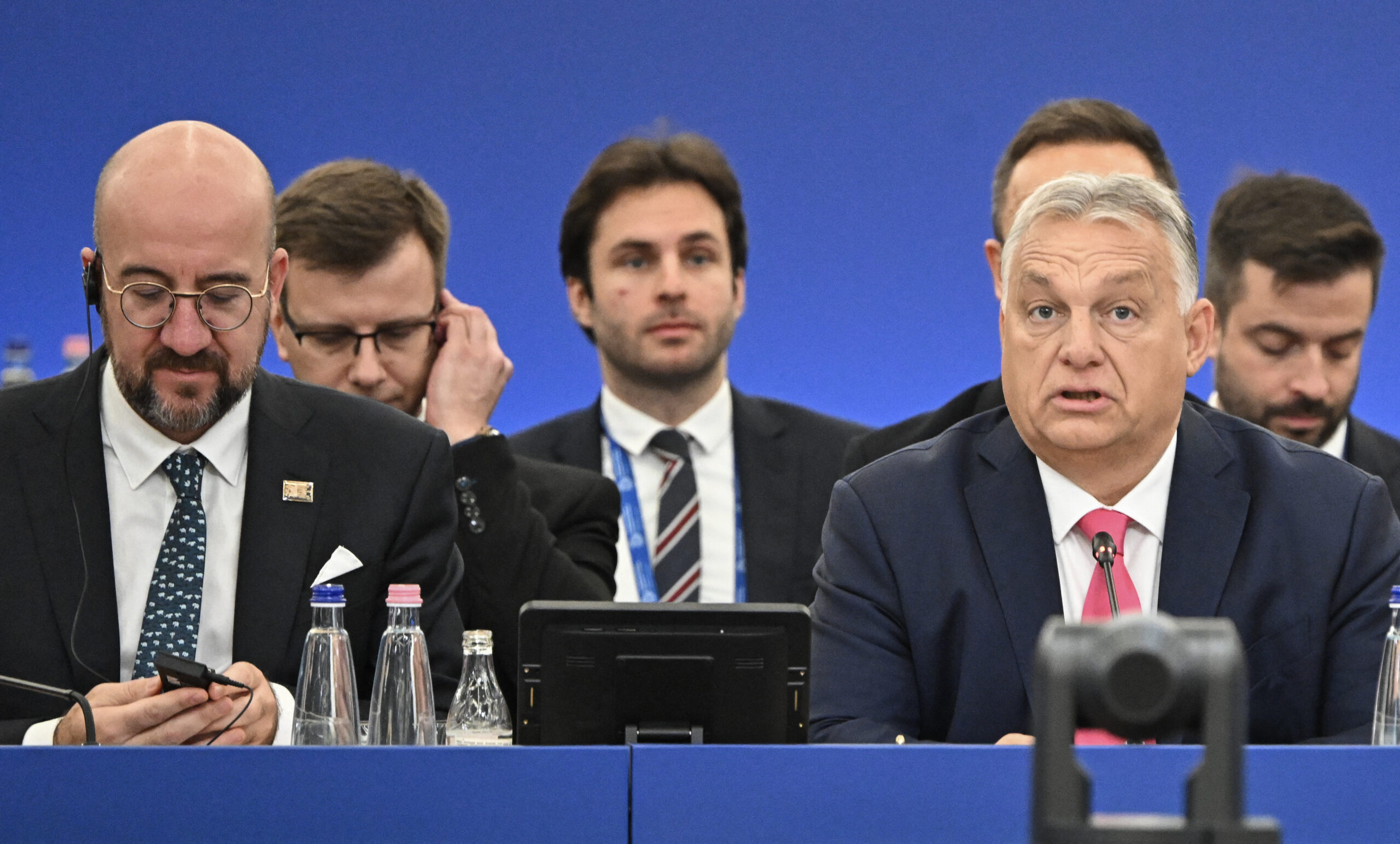Brussels – Leaders of EU institutions and the heads of state and government of more than 40 countries in continental Europe met in Budapest, hosted by Hungarian Prime Minister Viktor Orbán, for the fifth meeting of the European Political Community. The protracted war in Ukraine, economic security, and defence will be at the centre of the summit—all topics that can only be read in light of Donald Trump’s imminent return to the White House.
Upon her arrival at Budapest’s Puskas Arena—where the informal EU summit will also be held tomorrow (Oct. 8)—European Commission President Ursula von der Leyen reiterated her congratulations to the tycoon “for his clear victory” at the U.S. elections. “I look forward to working with him again to strengthen the transatlantic bond,” said the EU leader, drawing on “some experiences from his (Trump’s, ed.) previous mandate.” No alarmism about the Trumpian isolationist agenda: “It will be important to analyze together what our common interests are and to work on the basis of these,” von der Leyen indicated. One among them: “It is in our common interest not to allow autocrats to intimidate others.”

A hand outstretched to the other side of the Atlantic in an effort to ensure that Trump does not turn his back on Ukraine and continues to support a peace based on international law. Borrowing the words of Charles Michel, outgoing President of the European Council, to continue “the battle in favour of the United Nations Charter and the integrity and sovereignty of states.”
Even Mark Rutte, NATO’s newly appointed Secretary General, on his arrival in Budapest, congratulated Trump on his “great success” in the election and invited him to “sit down at the table” to figure out how to deal with “North Korea, which together with China and Russia are working together against Ukraine.” In 2019, Trump was the first U.S. president to cross the border into North Korea and meet with Kim Jong-un, but now Pyongyang’s help to Putin “is not only a threat to the European part of NATO, but also to the United States,” Rutte warned.
Beyond what will happen in Washington after the new president takes office, Michel stressed that Brussels “has a plan for a more stable and prosperous European Union” to become more “in control of its destiny.” And on Ukraine, that means going forward “with more military equipment, financial means and political support.” Not exactly the host’s idea in Budapest: in his opening speech, in front of Ukrainian President Volodymyr Zelensky, Orbán immediately took the opportunity to relaunch his very personal peace mission.
“I launched a peace mission, and I am grateful to President Erdogan for supporting my efforts,” highlighted Orbán, who said his effort had the merit of triggering “discussion on ways to replace the war strategy with a peace strategy.” According to the Magyar prime minister, there will be no alternative: “There continues to be a massive pro-war majority in the European Union despite the fact that military experts see a defeat of the European strategy on the battlefield,” he complained to colleagues in the European Political Community.
English version by the Translation Service of Withub





